Want to be seen here?
Connect your company to the marketplace for free.
Time for a display campaign? Ocast has gathered thousands of solutions in one place so you can get started quickly. Fill in the form and start receiving offers for campaign proposals.

The Killeen Daily Herald is a daily newspaper in Killeen, Texas. The newspaper was established in June 1890 as the weekly Killeen Herald, owned by W.E. Bennett. The newspaper is owned by Frank Mayborn...

The Longview News-Journal is the major newspaper printed in the City of Longview, Texas.Dating to 1871 under independent publishers, including James Hogg, later Texas governor, and Carl Estes, Longvie...

Lubbock Avalanche-Journal is a newspaper based in Lubbock, Texas, United States. It is owned by Gannett.The Lubbock Avalanche was founded in 1900 by John James Dillard and Thad Tubbs.The Avalanche-Jou...
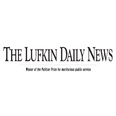
The Lufkin Daily News became a member of the Southern Newspapers Inc. family on June 1, 2009, when the Houston-based community newspaper company purchased the Lufkin and Nacogdoches daily newspapers. ...

The Mineral Wells Index was a daily newspaper published in Mineral Wells, Texas, on weekday afternoons and Sunday mornings. The Index coverage area included Palo Pinto County, Texas. It is owned by Co...

The New Braunfels Herald-Zeitung is a newspaper based in New Braunfels, Texas, covering the Comal County area of Central Texas. It publishes five days a week (excluding Sunday and Monday). It is owned...

The Palestine Herald-Press published in Palestine, Texas, and distributed Tuesday through Friday mornings and a Weekend edition delivered on Saturday mornings. It is owned by CNHI.Founded in 1849 as t...

San Angelo Standard-Times is a daily newspaper based in San Angelo, Texas, United States that was established in 1884. It is owned by Gannett.The newspaper was established in 1884 by J. G. Murphy, the...

For more than 100 years, the Temple Daily Telegram – a seven-day, morning newspaper and leading source of news and information for Central Texans since 1907 – has been an integral part of the lives of...
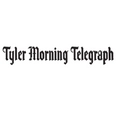
The Tyler Morning Telegraph is a daily newspaper based in Tyler, Texas, United States. It is privately owned by M. Roberts Media.The Tyler Morning Telegraph has been in publication since 1929, but the...

The Victoria Advocate is a daily newspaper independently published in Victoria, Texas. It is the second-oldest paper in Texas and the oldest west of the Colorado River, dating back to May 8, 1846, fo...

The Waco Tribune-Herald is an American daily newspaper serving Waco, Texas, and vicinity.The Tribune-Herald is best known for a series of stories in February and March 1993 about the Branch Davidian s...

The Weatherford Democrat is a five-day daily newspaper published in Weatherford, Texas, on Tuesday through Friday and on Saturday. Covering Parker County, Texas, it is owned by Community Newspaper Hol...

The Baylor Lariat is the award-winning student newspaper of Baylor University. Started in 1900, the publication has covered several top stories, both national and local.It was named Best Student Newsp...

the Times-Review was a more colorful newspaper to read, and notably to be employed by, in the early to middle years of the 20th Century.In 1950, the Times-Review added teletypesetter equipment and was...

The Times Record News is the leading newspaper in 16 North Texas and Southern Oklahoma counties. Having provided quality journalism and advertising to Wichita Falls and its surrounding communities for...
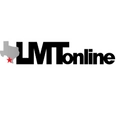
The Laredo Morning Times, founded in 1881, is one of the oldest newspapers in Texas. It was acquired by Hearst in 1984. Tiempo de Laredo, part of the LMT family, is a Spanish-language daily that inclu...
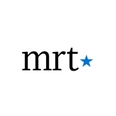
The Midland Reporter-Telegram, acquired by Hearst in 1979, is located in the heart of the vast 54-county Permian Basin of West Texas, a geological region producing 70 percent of the oil in Texas.The n...
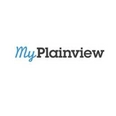
The Plainview Herald was acquired by Hearst in 1979. The Texas newspaper is published in the nation’s largest cotton-growing region and on the edge of the nation’s heaviest concentration of cattle-fee...
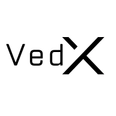
We offer several websites for banner advetisments, linkbuilding. All from travel, booking, hotels, construction, food and wine....
Display advertising, often referred to as banner advertising, involves visual ads placed on various websites, in contrast to text-based search ads that appear in search results on platforms like Google.
While search ads are focused on direct response, display ads aim at building brand awareness through engaging visual content like images or animations. Display advertising also enables retargeting, where ads are redirected to users who have previously visited your website, helping to keep the brand fresh in mind.
With opportunities to measure campaign performance and customize design and target audience, display advertising offers an attractive strategy for brands looking to enhance their online presence and effectively engage their target audiences.
The most effective formats and sizes for display ads vary depending on the platform and target audience, but here are some popular options:
Leaderboard (728x90 px): Positioned at the top of the page, this ad size captures visitors' attention right away.
Medium Rectangle (300x250 px): This size is flexible and can be placed in sidebars or embedded within content.
Large Rectangle (336x280 px): A larger variant of the Medium Rectangle that offers more visible space.
Wide Skyscraper (160x600 px): Often used in sidebars, offering a long, vertical ad space.
Mobile Leaderboard (320x50 px): Optimized for mobile devices and often placed at the top or bottom of the screen.
Consider adhering to industry standards and adapting ad format and size to the specific platform and your target audience. However, the emphasis should be on having well-thought-out content that engages and is relevant to your target audience with clear "Call to Actions" (CTA) to encourage clicks and conversions.
Measuring the effectiveness of your display advertising campaigns is crucial for evaluating the results of your campaign and for fine-tuning future marketing strategies. A first step could be to look over the Click-Through Rate (CTR), which represents the number of clicks your ad receives per view, providing an indication of the ad's engagement level. It is also important to track the conversion rate, which shows how many clicks are converted into desired actions such as sales or leads. Cost Per Conversion is another key indicator that helps you understand the cost-effectiveness of your campaign.
It may also be good to look at the impression rate, that is, how many times the ad has actually reached out and been displayed for brand-building purposes.
One of the major advantages of this type of advertising is its ability for audience targeting, where ads can be directed based on demographics, behavior, and retargeting, enabling a more personalized advertising experience. Moreover, with the use of various analytical tools, it becomes easy to track and measure the campaign's effectiveness by observing data on clicks, conversions, and views, which provides valuable insights.
However, display advertising also has its downsides. Ad blocking is one of the major challenges, where users can choose to block display ads, which in turn reduces the reach and effectiveness of your campaign. Ad fatigue is another downside, where ads that are shown too often can become irritating for the users, leading to decreased engagement and negative brand associations. Despite the ability for audience targeting, audience dilution can be a challenge if precise targeting is not used, which potentially leads to wasted marketing expenses. Additionally, the cost of display advertising can become significant, especially if the campaign is not well optimized to achieve desired results.
The cost of display advertising can vary based on several factors such as website, ad format, and target audience. Besides that, there are different pricing structures one can base on to adjust the cost according to the goal at hand. Below we list different pricing options for display advertising.
CPM (Cost Per Mille or Cost Per Thousand Impressions):
The price for 1000 views of your ad.
Often used for campaigns aimed at increasing brand awareness.
CPC (Cost Per Click):
The price you pay for each click your ad receives.
Used when the goal is to drive traffic to a website or increase interaction.
CPA (Cost Per Acquisition or Cost Per Action):
The price for each specific action or execution, such as a purchase or lead generation, that arises via your ad.
Used when the goal is conversions rather than just views or clicks.
CPL (Cost Per Lead):
The price for each lead generated through your ad.
Used in B2B marketing or for products/services with longer sales cycles.
CPV (Cost Per View):
The price for each viewing of a video ad.
Often used for video-based advertising campaigns.
Each pricing structure suits different goals and campaign types, and choosing the right pricing structure can help maximize the ROI for your display campaign.
Connect your company to the marketplace for free.
No commitments.